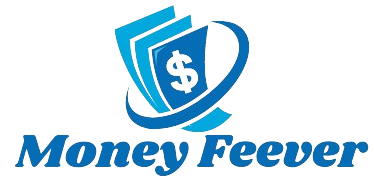Have you ever dreamed of escaping the 9-to-5 grind and becoming your own boss? Multi-level marketing companies like Vemma often promise exactly that – financial freedom and a life of luxury built on selling health and wellness products. But some MLMs, particularly Vemma, have faced accusations of being pyramid schemes. These schemes focus on recruitment over actual product sales, leading to financial losses for many participants. So, what’s the truth about Vemma? Was it a legitimate path to riches or a recipe for disappointment? Let’s unpack the facts and separate the dream from reality.

Vemma: From Dietary Supplements to Controversy
Vemma was a multi-level marketing company founded in 2004 by the Boreyko family in Arizona. Initially, it focused on selling dietary supplements, particularly a flagship product called “Vemma” – a complete nutrition formula.
Background
- Vemma wasn’t the Boreyko family’s first foray into this space. They previously ran New Vision International, another MLM company established in 1994, which faced legal trouble for making unsubstantiated health claims about its products.
- Vemma, however, rose to prominence in the early 2010s, targeting young adults with its “Young People Revolution” campaign. This campaign heavily promoted the idea of achieving financial independence through Vemma’s business model.
Products
Vemma’s product line expanded beyond its namesake supplement to include:
- Energy drinks (Verve)
- Weight management products (Bod•e)
Business Model
Vemma operated as a typical MLM company. Here’s a breakdown of how it worked:
- Distributors: Individuals signed up to sell Vemma products. They earned commissions not just from their own sales, but also from the sales of people they recruited into the downline (their team).
- Focus on Recruitment: Vemma’s marketing heavily emphasized building a team and earning through recruitment. Critics argued this structure prioritized signing up new distributors over actual product sales to consumers.
Vemma’s Business Practices: A Closer Look
Compensation Plan
Vemma’s compensation plan, like most MLM structures, offered commissions based on “Commissionable Volume” (CV) generated by sales. However, the details became crucial in the controversy surrounding Vemma.
- Ranks and Bonuses: The plan involved achieving ranks based on personal and downline sales volume. Higher ranks unlocked additional bonuses and commissions on a larger portion of the downline’s sales.
- Focus on “Balance”: Vemma emphasized achieving “balance” in your downline – having similar sales volume on both your left and right “legs” (recruitment teams). This focus on building equal-sized teams fueled concerns about recruitment being prioritized.
Read More: Is AO Company a Pyramid Scheme?
Recruitment vs. Product Sales
Vemma faced criticism for allegedly prioritizing recruitment over genuine product sales. Here’s why:
- High Enrollment Costs: Becoming a Vemma distributor often required purchasing expensive starter packs with a significant amount of product. This initial investment pressured distributors to focus on selling memberships (recruitment) to recoup costs, rather than individual product sales.
- Downline Reliance: Earning significant income in Vemma heavily relied on building a large downline. This structure can make it difficult for those lower in the hierarchy to achieve substantial profits solely from product sales.
However, in 2015, the Federal Trade Commission launched an investigation into Vemma, suspecting it operated as an illegal pyramid scheme.
The FTC found that Vemma’s compensation plan heavily favored recruitment over product sales. The high cost of starter packs and the emphasis on “balance” in the downline structure further supported these suspicions.
The FTC also accused Vemma of making misleading claims about potential earnings. Many distributors struggled to make a profit, while company marketing portrayed financial freedom as readily achievable.
But, in 2016, Vemma agreed to a settlement with the FTC. The company faced a hefty fine and was prohibited from using deceptive marketing practices and focusing solely on recruitment. Vemma’s leadership was also restricted from similar business ventures in the future.
Vemma’s Response: Too Little, Too Late
Vemma’s Response:
Vemma maintained they were a legitimate MLM company, claiming the FTC misunderstood their business model. However, they did make some changes following the settlement:
- Revised Compensation Plan: The details of the revised plan are unclear, but it likely aimed to address the FTC’s concerns about the emphasis on recruitment.
- Limited Statements: Public statements from Vemma’s leadership have been scarce since the settlement.
Red Flags and Warning Signs
Let’s analyze Vemma’s practices against common red flags of pyramid schemes:
- High Upfront Costs: Vemma’s expensive starter packs burdened new distributors, pressuring them to focus on recruitment to recoup their investment.
- Emphasis on Recruitment: Vemma’s marketing heavily emphasized building a downline, raising concerns that income stemmed primarily from signing up new distributors rather than selling products.
- Unsubstantiated Income Claims: The “Young People Revolution” campaign and other marketing materials painted an unrealistic picture of achievable wealth, potentially misleading potential distributors.
Income Disclosures
Vemma, like many MLMs, often failed to disclose the low success rate for distributors to achieve significant income. Most distributors likely made minimal profits, if any, after factoring in the initial investment.
Is Vemma a Pyramid Scheme?
Is Vemma a Pyramid Scheme? Yes, Vemma was accused of being a pyramid scheme by the FTC and later shut down.
Vemma, a health and wellness company known for its energy drinks and supplements, has faced significant scrutiny over allegations of operating as a pyramid scheme. The core of the controversy lies in its business model, which heavily emphasized recruitment over product sales. In 2015, the Federal Trade Commission (FTC) investigated Vemma and found that it made misleading income claims and that most distributors earned little to no money. The FTC’s findings highlighted that Vemma’s compensation plan incentivized recruitment, a key characteristic of pyramid schemes.
As a result, Vemma agreed to a settlement with the FTC, which included restructuring its business model to focus more on retail sales and less on recruitment. While Vemma has made efforts to reform and comply with legal guidelines, its previous practices align closely with the definition of a pyramid scheme. Therefore, based on past operations and the FTC’s findings, Vemma exhibited many traits of a pyramid scheme, particularly before its settlement and subsequent changes.
Conclusion
Based on the evidence, Vemma exhibited many characteristics of a pyramid scheme, particularly before the FTC’s intervention. While it made efforts to reform, the initial emphasis on recruitment and the resulting financial losses for many distributors cannot be overlooked. If you’re considering joining an MLM company, it’s crucial to scrutinize their business model, income disclosures, and legal history.
Read More: Is Vector Marketing a Pyramid Scheme?

2 thoughts on “Is Vemma a Pyramid Scheme?”